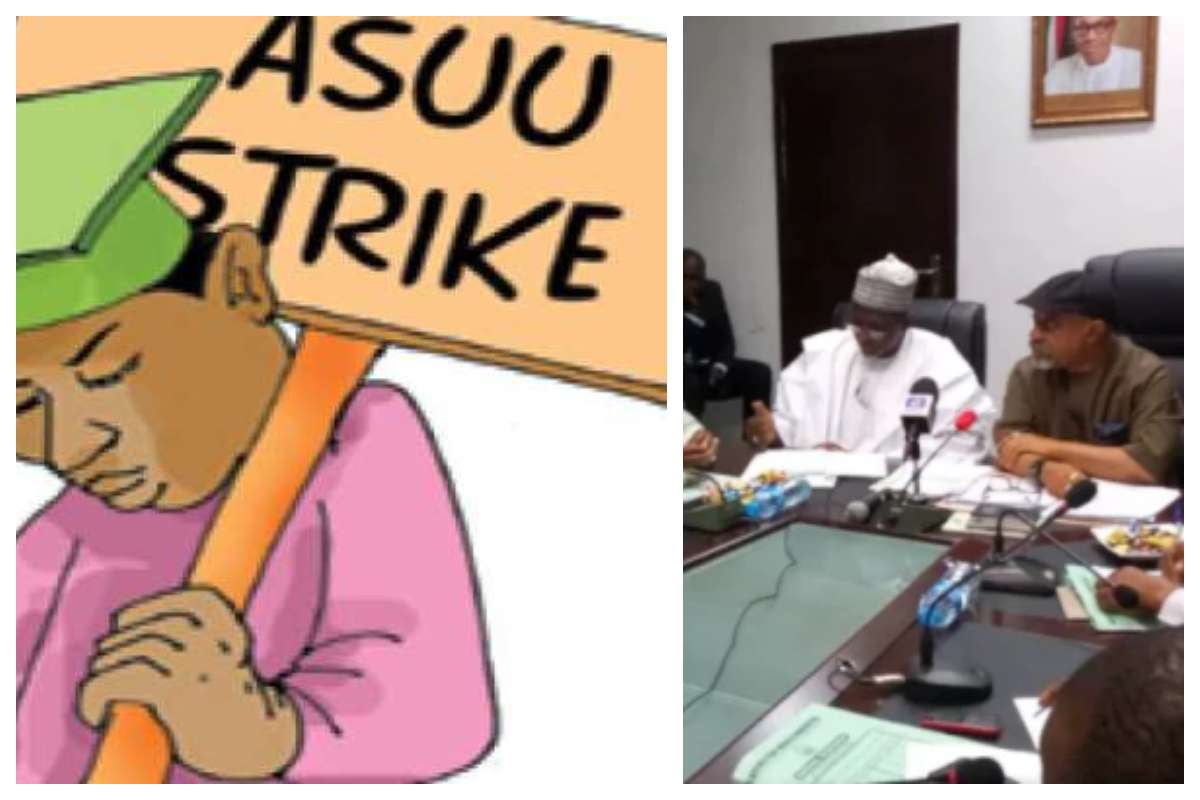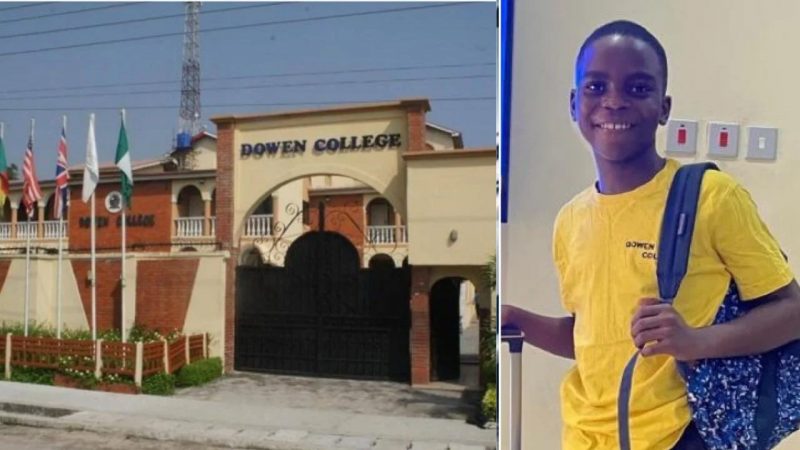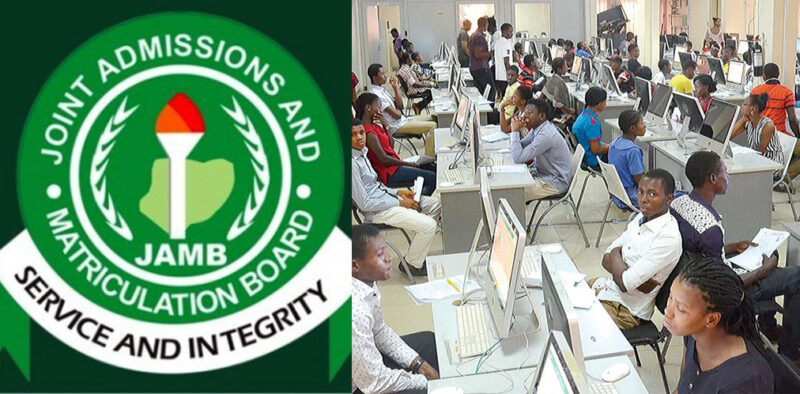Education
Strike: We’re still considering govt offer, says ASUU

- NANS threatens to shut down all private universities
National President of the Academic Staff Union of Universities (ASUU), Prof. Biodun Ogunyemi, says the appropriate organ of the union is still reflecting on the Federal Government’s offer and will make its position known soon.
He denied claims that the union agreed to end its strike on Wednesday, December 9.
He spoke just as the National Association of Nigerian Students (NANS) has threatened to shut down all private universities across the country should the nine-month strike embarked upon by ASUU continue.
“To put the records straight, the principal officers and trustees, who constitute the core of representatives of ASUU at negotiation meetings with the government, are not constitutionally empowered to suspend any strike action,” Ogunyemi said in a statement.
Minister of Labour and Employment, Dr Chris Ngige, in a statement, had said ASUU promised to call of the strike by December 9, 2020.
Ngige also said promises made to ASUU could only be achieved if the union returned to work.
But Ogunyemi said, “ASUU leadership did not reach any understanding with government to suspend the strike on December 9, 2020, and there is nothing in the government offer of November 27, 2020 to suggest that conclusion as allegedly claimed by the Minister of Labour and Employment.
“At our last meeting in the office of the Minister of Labour and Employment on November 27, 2020, the ASUU leadership promised to faithfully present the latest government offer to its members through the established tradition.
“The latest offer by government makes proposals on nearly all items of demand by the union with timelines. Among others, the document which was signed by the Hon. Minister of Labour and Employment, Senator Chris Ngige, contains proposals on inauguration of the reconstituted FGN-ASUU Renegotiation Committee (1st December, 2020); release of details about visitation panels (1st December, 2020); working on the actualisation of the release of the withheld salaries of ASUU members (Wednesday, December 9, 2020).
“Clause 9 on the document reads, ‘Based on these conclusions reached on items 1-8, ASUU’s leadership will consult its organs with a view to suspending the ongoing strike.’”
He explained that the outcome of any engagement with agents of the government remained an offer which must be taken back to the branches through the various organs of the union.
He stated, “Views and perspectives on offers by governments are aggregated and presented to government agents as counter-offers.
“This trade union strategy of offer and counter-offer is continually deployed until the National Executive Council (NEC) of ASUU – consisting of all recognised chairpersons – finally approves what it considers an acceptable offer from the government. It is only then that any strike action by ASUU can be suspended.”
Ogunyemi also said the strike would have been avoided had the government implemented agreements it signed with ASUU.
The ASUU leader said, “It was a needless crisis in the first place. It happened because government has consistently failed to faithfully implement the agreements it freely signed with the union.
“ASUU members, as stakeholders in the Nigerian university system, are equally worried and embarrassed that those in position of authority, over the years, displayed seeming indifference to the rot and decay in Nigeria’s public universities.”
Meanwhile, President of NANS, Sunday Asefon, while speaking on a Punch Online interview programme, The Roundtable, said the association would shut down all private universities if FG and ASUU failed to resolve the crisis.
Asefon, who lamented that the ongoing strike, which is the longest industrial action embarked upon by the university lecturers, said that NANS would get into a discussion with the Federal Government representatives and ASUU leaders to find a lasting solution to resolve the stalemate in negotiations between the two sides.
However, the NANS President pointed out that if the strike action was not called off as soon as possible after consultations with both parties, the association would be left with no option but to move in and shut down all tertiary institutions in the country.
Education
22 Zamfara varsity students, staff members released after six months in captivity

22 Zamfara varsity students, staff members released after six months in captivity
Twenty-two abducted students and staff members of the Federal University Gusau, Zamfara State, have finally been released after six months in captivity.
The victims, comprising 15 students and seven workers of the university, were abducted from the university in September 2023.
They were received on Monday April 15 in Abuja by the National Security Adviser, Nuhu Ribadu.
The captives were released in three batches, with the last batch returning home on Sunday April 14.
Ribadu said the rescue operation was coordinated by the National Counter-Terrorism Centre.
He urged them not to allow their experience to break them, but should rather make them stronger.
He said, “On behalf of the President, I thank all those involved in the successful rescue of the victims without losing anyone of them or paying any ransom.
“This is yet again a success story in our efforts to free all those being unlawfully held in captivity.
“We have so far released over a thousand of such victims without noise and with complete respect to their privacy and safety.
“This occasion marks a final juncture in a series of rescues we have undertaken in the last few months, to free victims of recent cases of mass abductions.
“Going forward, we are strengthening law enforcement and security measures to prevent these abductions, and strengthen physical security across vulnerable communities.”
National Coordinator, NCTC, Maj.-Gen. Adamu Laka, recalled that those rescued were abducted from the school on September 22, 2023, at about 0230hrs.
He said the bandits armed with various weapons attacked three off-campus students’ hostels at Sabon Gida in Gusau and kidnapped a number of female students alongside some male artisans.
Others, he said, were a private security guard and a protocol officer of the university.
He added that the bandits ransacked the hostels, and carted away foodstuffs, mobile phones, laptops, ATM cards, cash and other valuables.
According to him, the abductees were subsequently herded on motorcycles and foot to a location through a town in the Tsafe Local Government Area of Zamfara.
Laka said, “Search and rescue was conducted by a combined team of law enforcement agencies and the abductees were subsequently released in three batches, after 207 days in captivity.
“The first batch was rescued on March 15 while the second batch was rescued on April 12 and the last batch was rescued on April 14.
“All the abductees were profiled at the NCTC while the ONSA Medical Team examined them and administered minor treatments on the bruises sustained by 3 of the abductees.”
Education
Oromoni’s death natural but avoidable, coroner rules

Oromoni’s death natural but avoidable, coroner rules
Sylvester Oromoni died of a natural cause and not due to any action by his school, Down College, or accused five students of the college.
This is the verdict of a coroner, Mikhail Kadiri, who presided over the matter on Monday during a seven-hour magistrate court sitting in Ogba, Lagos.
The judgement coming after a two-year inquiry, affirmed that the 12-year-old died of sepsis emanating from an infection of the lungs and kidney due to an ankle injury.
The coroner however said his death was an avoidable case of parents and medical team’s negligence.
Sylvester Oromoni Junior who was a student of Dowen College in Lekki, Lagos, died on November 30, 2021.
The coroner cleared the five students of the college accused in the case, ruling that they played no part in the death of Sylvester and should not have been involved in the matter.
He also advised parents not to take their children’s health with levity.
The magistrate also called for better cooperation between the police and medical team and that the police must exercise caution before making arrests in the future.
Education
2024 UTME: What students need to do before, during JAMB exam

2024 UTME: What students need to do before, during JAMB exam
The 2024 Joint Admissions Matriculation Board (JAMB)/Unified Tertiary Matriculation Examination (UTME) exam will hold between April 19th and 29th, 2024.
As a student planning to sit for JAMB/UTME exam, you should be done with the registration by now which was extended to April 11.
In this article, there are practical steps to follow before and during the UTME exam which will help you excel.
1. Know the cut-off mark
You should be aware of the required JAMB cut-off mark and choose the desired score for your respective course and school. To achieve a high score in JAMB, it is pertinent to determine the average JAMB cut-off mark needed for your desired course and institution.
This score can be determined from the normal JAMB cut-off mark for JAMB (140), which will qualify you for post-UTME and merit admission. It is essential to research and write down this average score to determine the minimum mark you should work towards.
Knowing this would help you to put your mind into the exam by setting clear goals for yourself that you want to meet the cut-off mark for JAMB or surpass it.
For example, if you want to study mass communication, and target 320 in JAMB, you can accomplish that by setting your mind on scoring 80 in English, 80 in Litertaure-in-English, 90 in Government, and 70 in CRK/IRK depending on your subject.
2. Have a study plan and reading timetable
Another practical guide to help you excel as a student sitting for UTME is to improve your learning by creating a study plan and reading timetable for yourself.
READ ALSO:
- Naira could trade below ₦1,000/$ – Goldman Sachs
- How I helped Emefiele pick $3m cash – Former dispatch rider
- Why seven APC members of Plateau assembly weren’t sworn in – Speaker
This will help you manage your time effectively and efficiently as a student. You must reflect on previous performances and methods of preparation for different subjects. You must know your strengths and weaknesses in all subjects, and devote appropriate time for them to have success.
Make a time chart of your present activities and record details about your daily routine, including when you get up, go to bed, do your chores, work, and go out, to help you design a customised study plan.
3. Go through JAMB past questions
It is essential that you go through JAMB past questions to help you familiarise yourself with the patterns in order to study efficiently. Since objective questions can be determined from the provided alternatives, they are simpler to prepare for.
As a student writing UTME, you must understand the typical formats in which they pose questions. This might assist in determining where to concentrate more, for instance, if JAMB has assigned more questions in courses like physics or chemistry that involve calculation than theory.
Geometry, trigonometry, statistics, matrices, and differentiation are among the topics covered most frequently in mathematics, according to computer analysis of previous problems. Lexicography and structural questions are more prevalent in English language classes, whereas organic compound questions consistently rank well in chemistry classes.
You must know all these patterns by going through JAMB past questions for at least the last 15 editions.
4. Study according to the JAMB syllabus
It is expedient to know that studying according to the JAMB syllabus is one the best practical steps to help you excel in writing UTME. Every exam has a specific topic, and the examiners anticipate that candidates will be familiar with relevant material.
Examiners ask forty questions on each topic, except for sixty in the English Language. Use exam-focused texts and previous question research methods under the JAMB syllabus to maximise your study time.
5. Solve at least 10 years of JAMB past questions
To succeed in the JAMB exam, you must study the syllabus several times, modify your study schedule according to the period you have left, and be dedicated to excellent studying.
Since JAMB has been administering exams since the 1970s, its question bank ought to have run out by now. Having known this, you will succeed in the exam by reviewing and solving at least 10 years past questions as you prepare.
In achieving this, use reliable sample questions, read textbooks and past questions, and make sure you understand the questions’ solutions if you want to succeed. You must concentrate on understanding the answers to the questions and consult textbooks for any questions you are unsure of.
6. Practice at least one timed JAMB CBT Software test daily for two weeks before the exam
A timed test lets you practice your accuracy and speed and is comparable to the actual JAMB exam. To get ready, choose a previous year and complete four topics’ worth of JAMB prior questions. Try to finish in the two hours that JAMB allocates for the exam. It would be an advantage for you if you select years that you have not experienced.
7. Be mentally fit for the exam
The most important thing you have to be sure of is being mentally ready for the JAMB exam.
You should shrug off all stress and doubts, and wear confidence as you prepare for the UTME exam.
See yourself as confident, well-prepared, and successful as you play out the exam scenario in your head. This can be accomplished by finding a peaceful area, closing your eyes, and acting out the entire exam day, from arriving at the exam center to gathering your materials, writing the exam, and departing.
Breathe deeply and slowly while listening to it in your head until you feel at ease. This is an optional step, but the only reason to do it is to prepare your mind to take the exam with composure when it comes around. This aids in confidence-building and stress management as tests get closer.
Finally, make sure you have all the writing materials for your JAMB UTME ready. If possible, do not use them for preparations, but make sure you have tested them to ascertain they are in good shape. Also, it will be advisable if you have spare materials to make everything double.
2024 UTME: What students need to do before, during JAMB exam
Vanguard
-

 Sports7 days ago
Sports7 days agoKane’s three children involved in car crash, hospitalised
-

 News5 days ago
News5 days agoFG gives update on where fleeing Binance executive is hiding
-

 Entertainment6 days ago
Entertainment6 days agoTolani Baj expresses love for Bobrisky
-

 metro5 days ago
metro5 days agoTroops neutralise 188 terrorists, rescue 133 hostages in assault operations
-

 metro5 days ago
metro5 days agoViral video: Edo CP orders trial of officer threatening people with gun
-

 News5 days ago
News5 days agoNLC, TUC jointly propose N615,000 new minimum wage
-

 News7 days ago
News7 days agoNew electricity tariff may drop if naira rebounds further – Adelabu
-

 metro6 days ago
metro6 days agoBreaking: Bobrisky sentenced to six months imprisonment without option of fine





















You must be logged in to post a comment Login